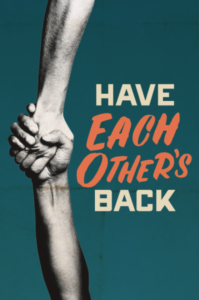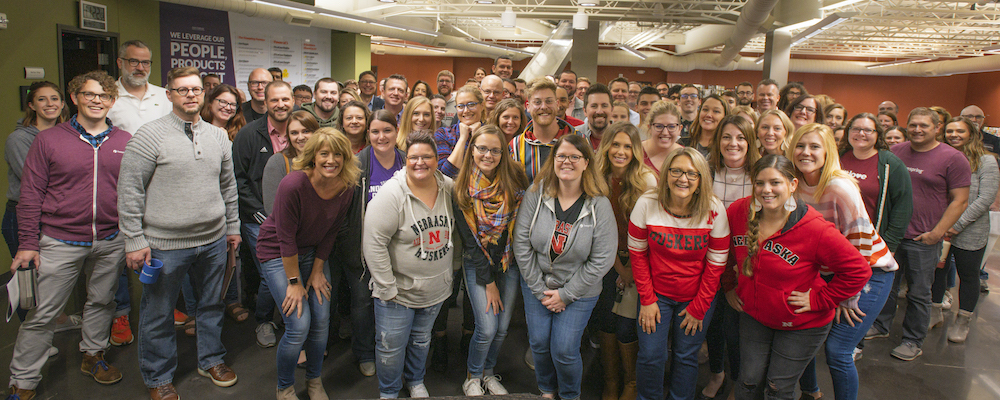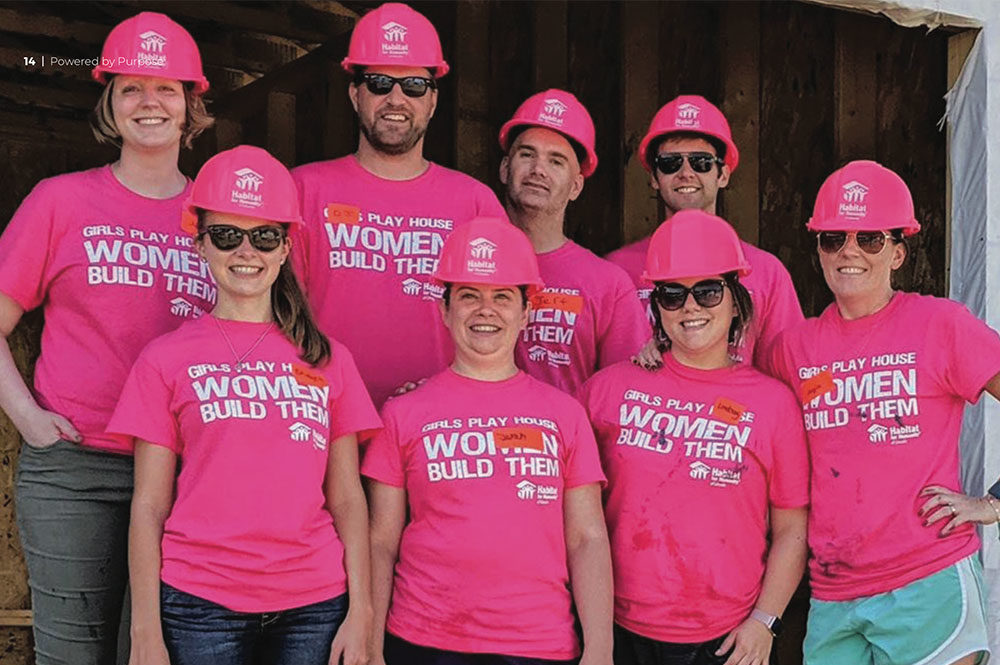The term “company culture” often gets confused with “workplace perks,” but they really refer to two different things. At our Firespring headquarters in Lincoln, we’ve created a fun workspace with a pool table and shuffleboard, a spa room for relaxation and massage and free beer and soda in the breakroom—and oh, we built a huge slide in the middle of the building to help team members get downstairs with fun and flair. It’s all pretty cool, to be honest.
But those perks have nothing to do with our company culture.
What is company culture?
An organization’s culture is about people, not things. More specifically, it’s about people who are aligned with one another and focused on making an impact with shared goals and values. Perks can come and go, but an impactful, authentic company culture will endure through both good times and challenging times and help define your brand, both internally and externally.
Why is company culture important?
Did you know that, according to the latest studies, 70% of U.S. workers say they’re not engaged at work? 70%. When most people change jobs, it’s not to make more money—only 12% of employees cite financial reasons for job changes. According to Officevibe, 75% of people voluntarily leaving jobs don’t quit their jobs; they quit their bosses. We also know that 70% of millennials say that they would take less money for an interesting job that was fun—so clearly, work is about more than just taking home a paycheck for the majority of people in the workforce.
There’s value in creating an engaging, dynamic culture in your company beyond just employee retention (though that’s a compelling reason in and of itself). It doesn’t have to cost you a fortune, and you don’t have to build a giant slide in the middle of your workplace. But it does require strategy, intent and design. Impactful company cultures do not happen by default.
What is an example of company culture?
At Firespring, we’ve built a vibrant culture that attracts top talent and passionate employees and have been able to sustain it for decades. To get an overview of what it looks like now, you can download our culture book; it’ll give you an insider’s look at what motivates and inspires us to keep bringing it, day after day, whether we’re celebrating successes or tackling tough challenges, like navigating a pandemic.
I won’t say it was easy or that it happened overnight, but I will tell you, it wasn’t complicated. It took some soul searching, important discussions and time, but it basically involved these three steps:
We defined our values.
Many companies think, “We’ve already done this,” but we haven’t done it to the point where our values make a difference to our employees or impact our decision-making. Walt Disney once said, “Once your values are clear, decisions are easy.” In my experience, this is very true.
What I typically see in both businesses and nonprofits alike are the same “values,” often listed the same way. “We’re innovative. We’re team players. We strive for excellence. We have integrity. We are passionate.”
You know what? Those are not values; they’re virtues. They’re great descriptors. We all want people in our companies who can say these things, right? But they’re not values that help to direct the creation of a company culture. In order for values to stand out and be memorable, we need to word them in a way that makes them easy to understand, embrace and live out in a practical sense. At Firespring, we defined three core values:
- We bring it. Every day.
- We have each other’s back.
- We give a shit.
Excuse my language on the third one, but when we expressed it that way, people rallied around it because they understood it. It resonated. And with all these values, our team members could identify how to tangibly live them out.



When you sit down to define and word your own company’s values, ask yourself these questions—they’ll give you some guidance in writing your values in a way that makes a difference.
- Is the value distinguishable?
- Are we obsessed with it?
- Will it outlive us?
- Would we sacrifice money to protect it?
- Can we actually live it every day?
That last point about living your values—that’s something you want every single person in your organization to get on board with. Not just the executive leadership, not just managers, but every employee, in every facet of your company. Which brings me to the second step.
We hire to our values.
Once you know what your values are, you can bring people in who will readily embrace them. At Firespring, we hire first for culture fit, and second for skill set. In other words, we care way more about how they will fit into our company than we do about how skilled they are. Why? Because you can’t change people after you’ve hired them. You can train them, you can educate them, you can help them develop skills—but you can’t fundamentally change them.

So, once you have the right people, the third step is simply a natural next step.
We live our values.
This step comes down to one simple thing: Repetition. Repetition is key in order to infuse your values into the fabric of your organization. At Firespring, here are some of the ways we make our values tangible and live according to what we believe.
One, we have a daily meeting; we refer to it as our Firestarter. For 11 minutes, at 11:11, we recap what’s happening on each team and recognize members who are living our values. “Yesterday, Shannon had my back with a project I needed some help on. I had a tight deadline, so she dropped everything and came to my rescue.” This is the type of thing you’d hear, every single day—people giving props to their coworkers for living out our values in a tangible way.
We also “give an F” (as in an actual, physical F from an old Firespring sign that we salvaged and put on a chain) each week to someone in the company who went above and beyond to help a co-worker or client or who simply showed up and lived out one of our values in a big, bold way. This person gets recognized at the Firestarter each Friday.
Two, and aligning with our “we give a shit” value, we ask every team member to give back to the community by volunteering at a nonprofit or organization of their choice. Everyone gets one paid day off each month in order to make this happen. Because we’ve established a culture of giving back and doing more good in our community, we are constantly looking for opportunities to live out our third value; volunteering is never a one-and-done deal. It’s part of our fabric.

How to create an authentic company culture.
Enough about us; let’s talk about you. If creating a dynamic, impactful culture is something you’re passionate about, I would recommend starting with these three steps.
1. Have a clear mission and vision.
Your mission is like the soil you use to plant your garden—it’s your foundation. If you don’t build your culture around a mission that’s inspiring and consistent, it will be hard to achieve unity in action. Before you worry about your company’s culture, first be clear about your mission, if you’re not already.
2. Cultivate shared values.
As I mentioned, your values are what dictate everyday action. “In our organization, a good person acts like [fill in the blank] and knows the importance of [fill in the blank].” Your job is to fill in those blanks, and then make sure that every person in your company knows the answers. Once you’ve identified your values, put them in words that make sense and resonate with your staff so they adopt them, not just in their words, but in their deeds—in the way they conduct business and live their lives.
3. Put your people first.
People always come first, period. Before policies and procedures. Before rules and regulations. When we put people first, we’re able to recruit top talent because they know they’ll be valued and treated with respect.
Most people in the U.S. spend more time at work than they do anywhere else. Why wouldn’t we want to create an environment and culture that energizes and equips them rather than deflates and defeats them? There are too many people who go to work every day thinking, “Man, I’d rather be anywhere else but here.”

A healthy company culture is key to organizational success because happy team members mean greater productivity, lower turnover, better customer service and high-caliber recruiting. A strong culture also attracts loyal clients, positively boosting your bottom line, reputation and impact in the community. If this is something you’re interested in, we’d love to help you evaluate your current culture and determine next steps.
Learn more about how you can work with us to become a Do More Good company.

